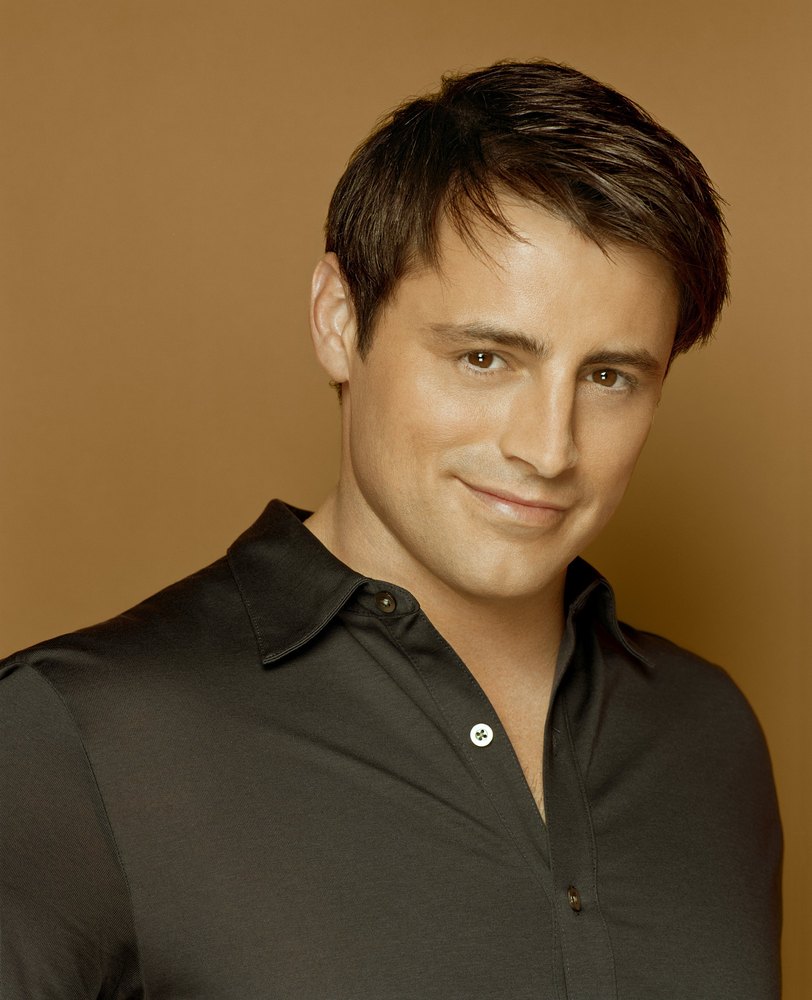Joey Witherspoon Jockey: Uncovering A Remarkable Figure In Early Horse Racing
Have you ever stopped to think about the people who shaped sports in their earliest forms, the ones whose stories might not fill history books but whose impact was truly significant? It's almost as if some names fade a bit too quickly, don't they? We often celebrate the widely known figures, the ones whose triumphs are documented in every detail, yet there are so many others, just as important in their time, whose contributions sometimes get lost in the shuffle of passing years. Today, we're taking a closer look at one such individual, a horseman whose career, though perhaps not widely chronicled, certainly held a special kind of meaning in the world of racing. We are going to explore the life and times of Joey Witherspoon, a jockey whose story offers a glimpse into a different era of horse racing, a period marked by its own unique set of challenges and triumphs.
This article aims to bring to light the legacy of Joey Witherspoon, a name that might not immediately ring a bell for everyone interested in horse racing history. He wasn't, you know, a household name in the way some legendary jockeys are, but his career was still very much a part of the sport's rich past. His journey on the track, particularly in the early 1900s, speaks volumes about the spirit of the sport and the people who dedicated their lives to it. So, let's learn a little more about this fascinating person and the world he inhabited, shall we?
We'll look at what made him stand out, even if his stories aren't always easy to find. His life as a jockey was, in some respects, a symbol of what it took to succeed in those demanding times. It was a period when horse racing wasn't simply a game; it was a big part of life, a spectacle that captured the public's imagination and involved a whole host of characters, from owners to trainers and, very much, the jockeys themselves. We'll also touch upon the broader context of jockeys from his era, especially those who, like Joey Witherspoon, might have faced particular circumstances that shaped their careers.
Table of Contents
- Joey Witherspoon: A Life in the Saddle
- Personal Details and Bio Data
- The Early 1900s: A Different Era for Horse Racing
- Resilience, Talent, and Grit: The Hallmarks of a Jockey
- The Broader Story of Jockeys in Early Racing
- A Complicated Web: The World Around the Track
- Remembering the Less Documented Careers
- Frequently Asked Questions About Joey Witherspoon Jockey
Joey Witherspoon: A Life in the Saddle
Joey Witherspoon, a name that resonates with the history of horse racing, was a jockey who rode during the early 1900s. He may not be as widely celebrated as some of the more famous figures in the sport's history, but his presence on the track was, apparently, quite notable. His career, though perhaps less documented in grand detail, likely held a significant place within the racing community of his time. He was, in a way, more than just a person who rode horses; he was a testament to the qualities needed to thrive in a very demanding profession.
He was, you know, a symbol of resilience, talent, and grit. These traits were absolutely essential for anyone hoping to make a mark in horse racing back then. The sport was, quite frankly, a tough one, requiring immense skill and physical endurance. Jockeys like Joey Witherspoon faced numerous challenges, from the physical demands of controlling powerful animals at high speeds to the constant pressure of competition. His story, therefore, helps us understand the true nature of horse racing as it existed a century ago.
It seems that at some point, Joey Witherspoon transitioned from active riding to a retired status, as there's a mention of someone trying to get the retired horse jockey Joey to do something. This detail, though small, hints at a career that spanned a considerable period, allowing him to reach a point of retirement from the intense world of professional racing. His experience and knowledge, one can imagine, would have been highly valued even after he stopped competing.
Personal Details and Bio Data
| Name | Joey Witherspoon |
| Profession | Horse Jockey |
| Active Period | Early 1900s |
| Key Traits | Resilience, Talent, Grit |
| Status | Retired (as mentioned in a historical context) |
| Notable Aspect | Not widely known, career less documented |
The Early 1900s: A Different Era for Horse Racing
The early 1900s presented a horse racing scene that was very different from what we see today. Back in those days, the sport wasn't just a simple competition; it was a deeply ingrained part of society and culture. It was a spectacle that drew large crowds, and the outcomes of races could have significant financial implications for many people involved. The tracks themselves were often less refined, and the conditions for both horses and jockeys could be quite rigorous. So, a jockey like Joey Witherspoon operated within this demanding environment.
The daily life of a jockey during this period involved a lot of hard work, dedication, and a fair amount of risk. They had to maintain strict physical conditioning, understand the unique temperaments of various horses, and make split-second decisions during races. The financial rewards, while significant for the very top riders, were often modest for many, making the pursuit of the sport a true labor of passion and skill. This context helps us appreciate the kind of person Joey Witherspoon must have been to thrive in such a setting.
Horse racing was, in some respects, a major form of entertainment, drawing people from all walks of life. The excitement of the race, the beauty of the horses, and the skill of the jockeys combined to create an experience that captivated the public. This atmosphere would have been the backdrop for Joey Witherspoon's career, a world where every race was a high-stakes event, both for the participants and for the many onlookers who followed the sport with such intensity.
Resilience, Talent, and Grit: The Hallmarks of a Jockey
When we talk about Joey Witherspoon, the words "resilience, talent, and grit" come up. These aren't just empty phrases; they describe the very essence of what it meant to be a jockey in the early 20th century. Resilience, for example, was crucial because injuries were common, and setbacks were an almost daily part of the job. A jockey needed to bounce back from falls, disappointments, and the constant physical toll that riding took on the body. This ability to keep going, even when things were tough, was a fundamental requirement for survival in the sport.
Talent, too, was an obvious necessity. It wasn't enough to just sit on a horse; a jockey needed an innate understanding of the animal, a feel for its stride, and the ability to guide it to its best performance. This involved subtle communication, precise timing, and a deep connection with the horse. Joey Witherspoon, by all accounts, possessed this kind of natural ability, which allowed him to compete effectively against other skilled riders of his era. It's almost as if he had a special way with the horses, allowing them to perform at their peak.
Grit, perhaps, ties it all together. This quality speaks to the sheer determination and mental toughness required. Jockeys often faced intense pressure, both from their owners and from the betting public. They had to make quick decisions under immense stress and push themselves and their horses to the absolute limit. This kind of unwavering resolve, a sort of inner strength, would have been a defining characteristic for Joey Witherspoon, allowing him to navigate the competitive and sometimes unforgiving world of horse racing. He really had to have that inner fire, you know?
The Broader Story of Jockeys in Early Racing
Joey Witherspoon's story, while unique to him, also fits into a much larger narrative about jockeys in the early days of horse racing. It's a fascinating part of history that many people might not be fully aware of. For instance, it's a fact that many of the early jockeys who competed in prestigious events like the Kentucky Derby were Black. This is a historical truth that, unlike today's racing scene, marked a significant presence of Black riders in the sport's formative years. Professor Pellom McDaniels of Emory University, for example, has shed light on this aspect of history.
This context is important because it suggests that Joey Witherspoon, operating in the early 1900s, may have been part of this tradition. While the text doesn't explicitly state his race, the mention of early Black jockeys in the same historical breath as his active period provides a very relevant social backdrop. These jockeys, regardless of their specific background, often faced considerable challenges beyond just the competition on the track. They had to contend with societal norms and prejudices that could make their careers even more difficult to pursue.
The contributions of these early jockeys, including figures like Joey Witherspoon, were absolutely vital to the development and popularity of horse racing. They were the athletes who made the sport thrilling and captivating, pushing the boundaries of what was possible on horseback. Their stories, even the less documented ones, help us understand the rich and complex history of American sports and the diverse group of individuals who shaped them. We are, in a way, still learning about their immense impact.
A Complicated Web: The World Around the Track
The mention of a "complicated web of people" around a champion race horse, and a plot to get him, hints at a much broader world surrounding the track. Horse racing, especially in the early 1900s, was often connected to significant financial interests, and sometimes, less savory dealings. The high stakes involved meant that there could be rivalries, conspiracies, and various individuals with a lot to gain or lose. This kind of environment would have been the backdrop for jockeys like Joey Witherspoon, who were integral to the success of these valuable animals.
Jockeys, in this context, were not just athletes; they were also, arguably, caught in the middle of these larger networks of owners, trainers, gamblers, and even criminal elements. Their performance directly impacted the fortunes of many, which could lead to both great opportunities and considerable pressure. The idea of a "complicated web" suggests that the world of horse racing was far from simple, with many hidden currents and motivations at play. It was, in a way, a microcosm of society itself.
Joey Witherspoon, as a jockey, would have been intimately familiar with this intricate ecosystem. His career likely involved navigating these relationships and understanding the unspoken rules of the racing world. The fact that he was a "retired horse jockey" when someone tried to involve him in a plot around a champion horse further suggests his deep connection to this world, even after he had stepped away from active riding. He was, quite clearly, a person of some standing or knowledge within that community.
Remembering the Less Documented Careers
It's interesting, isn't it, how some names become legendary while others, just as deserving, seem to fade from public memory? Joey Witherspoon isn't a widely known name in the annals of horse racing history, unlike some of the more famous jockeys whose exploits are recounted time and again. However, the very fact that his career is "perhaps less documented" doesn't diminish its importance. In fact, it highlights the need to look beyond the most celebrated figures and acknowledge the contributions of everyone who played a part in shaping the sport.
The reasons for a career being less documented can vary. Sometimes, it's simply a matter of limited record-keeping from that era, or perhaps the jockey's successes were more localized rather than national. It could also be that the historical narratives tended to focus on specific types of stories or individuals, inadvertently overlooking others. But, you know, every jockey who rode with resilience, talent, and grit, like Joey Witherspoon, contributed to the fabric of horse racing history.
Bringing stories like Joey Witherspoon's back into the conversation is vital for a more complete and nuanced understanding of the sport. It reminds us that history is made not just by a few towering figures, but by countless individuals whose dedication and skill, though perhaps not always in the spotlight, were absolutely fundamental. His story, even with its gaps, helps us appreciate the full scope of horse racing's past and the many remarkable people who were a part of it. It's really about giving credit where credit is due, even if it's a bit late.
Learn more about horse racing history on our site, and link to this page for more untold stories from the track.
Frequently Asked Questions About Joey Witherspoon Jockey
Who was Joey Witherspoon?
Joey Witherspoon was a horse jockey who was active during the early 1900s. He is described as a symbol of resilience, talent, and grit, even though his career is not as widely documented as some other famous jockeys from that period. He was, it seems, a significant figure in the horse racing community of his time.
Was Joey Witherspoon a famous jockey?
No, Joey Witherspoon isn't a widely known name in the history of horse racing, unlike some of the more famous jockeys. His career was perhaps less documented, but this does not lessen his importance or his impact within the sport during the early 1900s. He was, arguably, a quiet force in his era.
What was horse racing like during Joey Witherspoon's time?
In the early 1900s, horse racing was more than just a sport; it was a major cultural and social event. It involved a "complicated web of people" and could be a high-stakes endeavor, sometimes connected to various plots or significant financial interests. Jockeys like Joey Witherspoon operated in a demanding and often intense environment, requiring great skill and fortitude.

Joey Tribbiani Jr. | Friends Central | Fandom powered by Wikia

Opiniones de joey

Joey Tribbiani 2024